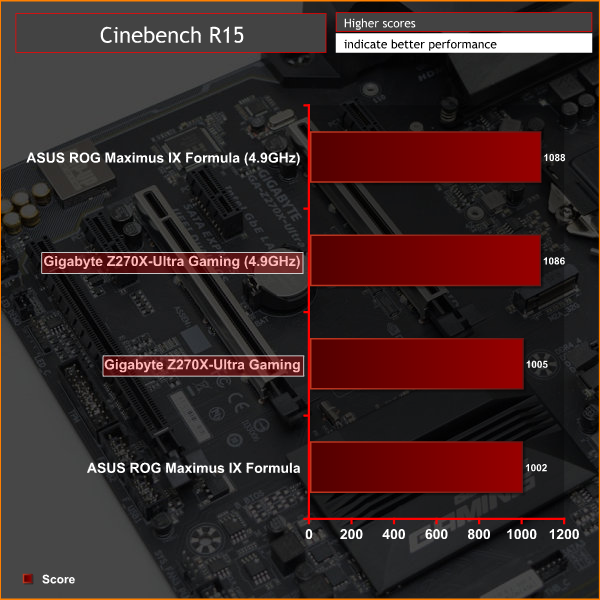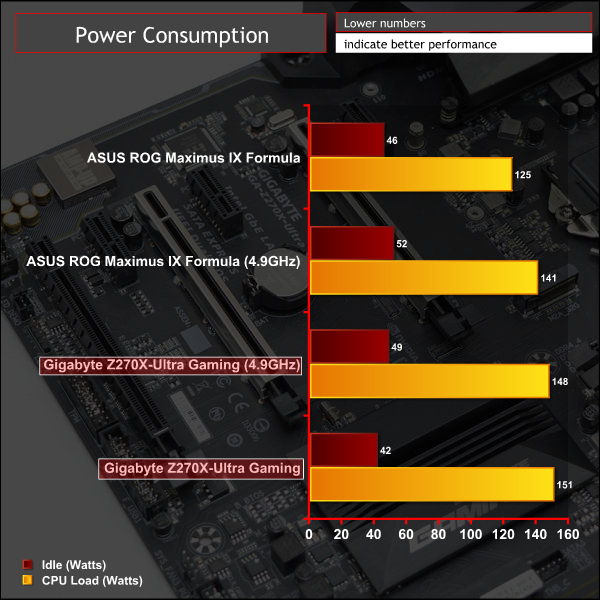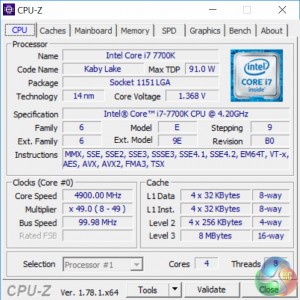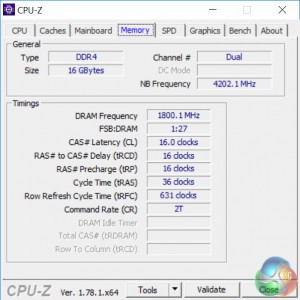The Gigabyte Z270X-Ultra Gaming happily achieved 4.9GHz, 49 x 100, at 1.375 volts using a high Load Line Calibration to maintain voltage stability. The system would not boot at all at 5 or 5.1GHz, where the ASUS Maximus IX Formula would, nonetheless, both motherboards were only benchmark stable at the same final frequency of 4.9GHz.
3600MHz XMP Memory:
We test the motherboard's ability to run G.Skill's high-speed 16GB DDR4 Trident Z kit at a 3600MHz XMP setting. High-speed XMP settings can prove a challenge for motherboard designers when optimising the settings for stability at the intended DRAM frequency.
High speed memory was not an issue either for the Gigabyte motherboard, it happily handled the XMP 3600MHz profile of our G.Skill Trident Z 16GB (2 x 8GB) memory kit.
Overclocked Performance
As a performance comparison, we have included the results from one other Z270 motherboard. The maximum overclocked configuration achieved with each board was a 4900MHz (49 x 100MHz) processor frequency whilst using 3200MHz CL16 memory.

Overclocked performance appropriately reflected the CPU frequency achieved.
Power
We leave the system to idle on the Windows 10 desktop for 5 minutes before taking a reading. For CPU load results we run AIDA64 CPU, FPU, and Cache stress tests and take a reading. The power consumption of our entire test system (at the wall) is shown in the chart.

As mentioned in the UEFI section of this review Gigabyte's auto-voltage for stock frequency testing (all-core Turbo of 4.5GHz with XMP memory) was overly aggressive ranging from anywhere between 1.35 and 1.4 volts. This resulted in higher power consumption when at stock compared to when overclocked.
Be sure to check out our sponsors store EKWB here
 KitGuru KitGuru.net – Tech News | Hardware News | Hardware Reviews | IOS | Mobile | Gaming | Graphics Cards
KitGuru KitGuru.net – Tech News | Hardware News | Hardware Reviews | IOS | Mobile | Gaming | Graphics Cards




